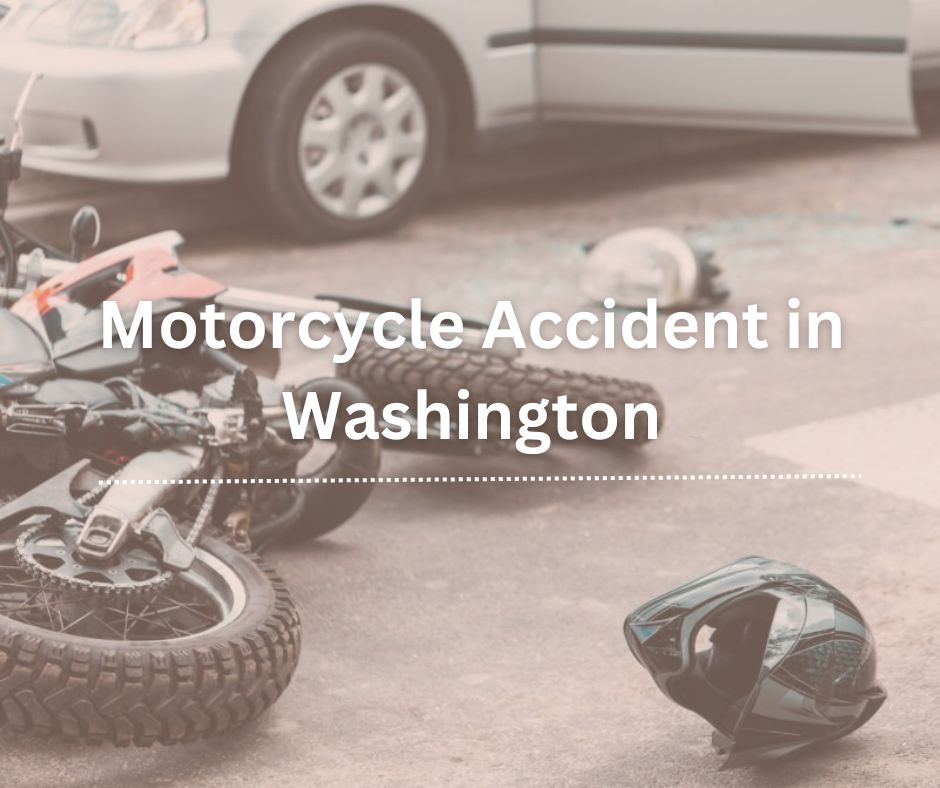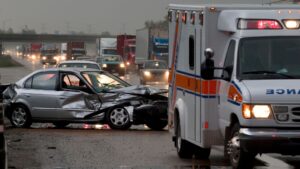
If you are the victim of a motorcycle crash, it can be a scary time full of unknowns. In the midst of the shock, hurt, and confusion, many people wonder what to do after a motorcycle accident in Washington. It can be hard to know where to start. This blog will discuss four steps to take when involved in a motorcycle accident and what not to do. Of course, this is just a general guideline, and each situation will vary. Contact Brett McCandlis Brown & Conner to schedule a one-on-one consultation.
Four Legal Steps to Take After Motorcycle Accident
Remember, this is a general guideline. Depending on the circumstances and injuries, specific steps may be more or less relevant to you. Motorcycle accidents often result in severe and life-threatening injuries. Calling 911 should always be your first step if anyone is injured.
Continue and Follow Up with Medical Treatment
Whether you require emergency medical care or could schedule a time to see your doctor later, you should be sure to be seen by a physician following a motorcycle accident. It is common to have internal injuries that do not immediately present themselves.
Non-life-threatening injuries still require a diagnosis and treatment. This can include:
- Primary care appointments,
- Radiology diagnostics,
- Orthopedic treatment,
- Surgery,
- Physical and occupational therapy, and
- Pharmaceutical services.
It is imperative to keep all documents relative to your doctor and hospital visits, including bills, medical records, receipts, and invoices. It can make calculating damages easier later.
Gather & Document Evidence
Let us preface this step by saying it is not always feasible for a motorcycle crash victim to do anything after an accident if their injuries are severe. If that is the case for you, don’t worry; we can help you do all of this even weeks and months later.
However, if you are fortunate enough to walk away from the wreck, you should document and gather evidence. This can include taking pictures of the following:
- The accident scene,
- Damage to the motorcycle,
- Damage to the other vehicle,
- Weather and road conditions, and
- Your injuries.
If you can, get the other driver’s contact and insurance information. You should also gather eyewitness information, including names and contact numbers.
At the scene, you should also:
- Calmly and accurately relay your version of events to the responding police officer so that they may document it in their accident report,
- Make a note of any nearby surveillance cameras, and
- Write down what you can remember about the crash.
At Brett McCandlis Brown & Conner, we have the resources necessary to obtain the evidence you need for a successful motorcycle accident claim.
Report the Accident
In Washington, you must file a Motor Vehicle Collision Report if anyone is injured or any party’s damage is $1,000 or more. Even if no one requires emergency medical attention, you should still request a police response to help ensure everyone’s safety and complete a police report documenting the accident. You must also notify your insurance company of the accident, even if you are not at fault.
Consult a Motorcycle Accident Attorney
One of the most important legal steps to take after a motorcycle accident is to speak with a seasoned lawyer as soon as possible to preserve your rights and discuss your options. An attorney will take the hassle out of your claim and assist you with all aspects of the case—including speaking with insurance adjusters, filing the claim, the discovery process, motion practice, and more.
What Not to Do After a Motorcycle Accident?
While the four tips above discuss what to do after a collision, there are also two important things not to do after a motorcycle accident.
Do Not Speak with the Other Driver’s Insurance
While you must report the accident to your insurance company and possibly provide a statement, you should not speak with the other driver’s insurance carrier without first speaking with an attorney. The other driver’s insurance company is looking to pay as little as possible on the claim, and they will use anything you say against you later. Make sure your attorney is present or at least consult with them beforehand.
Keep Off Social Media Platforms
Even if you are an avid social media poster, you should avoid social media after a motorcycle accident. Even if you think a picture, post, or comment is harmless, it could hurt your case. Do not post videos, photos, or information about the accident on social media platforms. Also, it is best not to post about your current activities at all during the pendency of the case.
Washington Motorcycle Accident Lawyers
At Brett McCandlis Brown & Conner, we have over 40 years of experience helping victims seriously injured in motorcycle accidents. Our goal is to help smooth your road to recovery and get you the compensation you and your family deserve. Contact us at your convenience to schedule a free consultation to discuss your rights and options.


